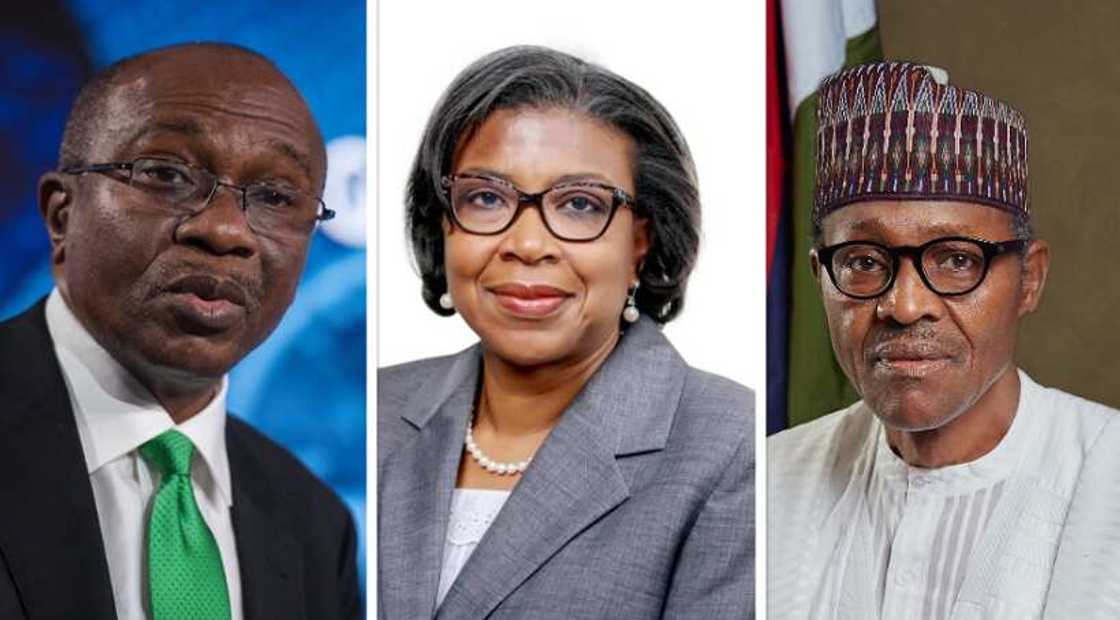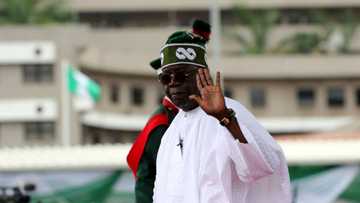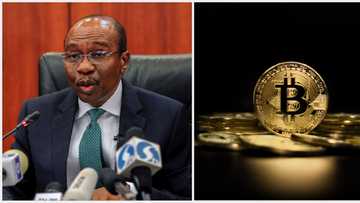DMO Speaks on CBN’s N22.7trn Loan Advances to FG, Highlights Advantages
- The DG of the DMO has stated that the securitization of the CBN loan advance request to FG will improve debt transparency
- She noted that it would allow the inclusion of the loan in public debt statistics and reduce the debt service cost
- The FG has however pledged to use securities like bonds and treasury bills to repay already collected short-term loans
PAY ATTENTION: Сheck out news that is picked exactly for YOU ➡️ click on “Recommended for you” and enjoy!
The Debt Management Office (DMO) has highlighted the securitization of the Central Bank of Nigeria's (CBN) N22.7 trillion “Ways and Means Advances’’ to the Federal Government of Nigeria.
Mrs Patience Oniha, while speaking in Abuja, the nation's capital, stated that the securitization of the loan to FG will improve debt transparency and would allow the inclusion of the loan in public debt statistics, NAN reports.

Source: UGC
It would be recalled that this week, the Senate assented to President Muhammadu Buhari's request to restructure the loans borrowed by the FG through Ways and Means Advances.
Even as the implementation of the loan request is awaiting the approval of the House of Representatives, the FG has pledged to use securities like bonds and treasury bills to repay already collected short-term loans
PAY ATTENTION: Follow us on Instagram - get the most important news directly in your favourite app!
DMO backs CBN’s N22.7trn loan advances to FG
The DMO has expressed optimism that this initiative will encourage greater financial discipline and transparency in the management of public funds.
Mrs Oniha said that the securitization of the advances will ensure that the funds are used for their intended purposes and that there is no diversion of funds.
She said:
It will reduce the debt service cost as the new interest rate is 9 per cent per annum while the Monetary Policy Rate of the CBN is 21 per cent per annum.
The large savings arising from the much lower interest rate will help to reduce budget deficits and expectedly, the level of new borrowings.
The securitization process will involve packaging the advances into securities, which can be sold to investors. These securities will then be traded on the financial market, providing the government with a more reliable source of funding while allowing investors to diversify their portfolios. This will further enhance the credibility of the Nigerian financial market.
Additionally, this move will improve the government's ability to manage its debt by reducing the cost of borrowing and providing more predictable sources of funding. It will also help the government meet its funding needs and promote economic growth.
Expert disagrees with DMO
Speaking with Legit.ng on Chris Umeh, a financial analyst, said that the plan may not work well for Nigeria.
He said:
According to the breakdown, the government will have about 4 decades to pay back the loans in treasury bills, bonds and other securities. Given the growing rate of inflation, the interest on the loans will be next to nothing in the coming years.
The timeline of Buhari CBN's loan request
In December 2022, Buhari sent a letter to the National Assembly seeking approval to convert the N22.7 trillion to a 40-year bond sold to investors at 9% interest with a three-year moratorium.
However, the request was rejected due to concerns about the debt's constitutionality.
On January 17, President Buhari requested the lawmakers to reconsider their stance.
In response, the Senate formed a special committee to gather the required information on the debt through communication with the executive.
However, the lawmakers did not approve the plan before recess on January 25.
Since then, there has been silence regarding the loan until Wednesday, May 4, 2023, 26 days before the end of Buhari's tenure, when the lawmakers decided to accept Buhari's request.
Source: Legit.ng




